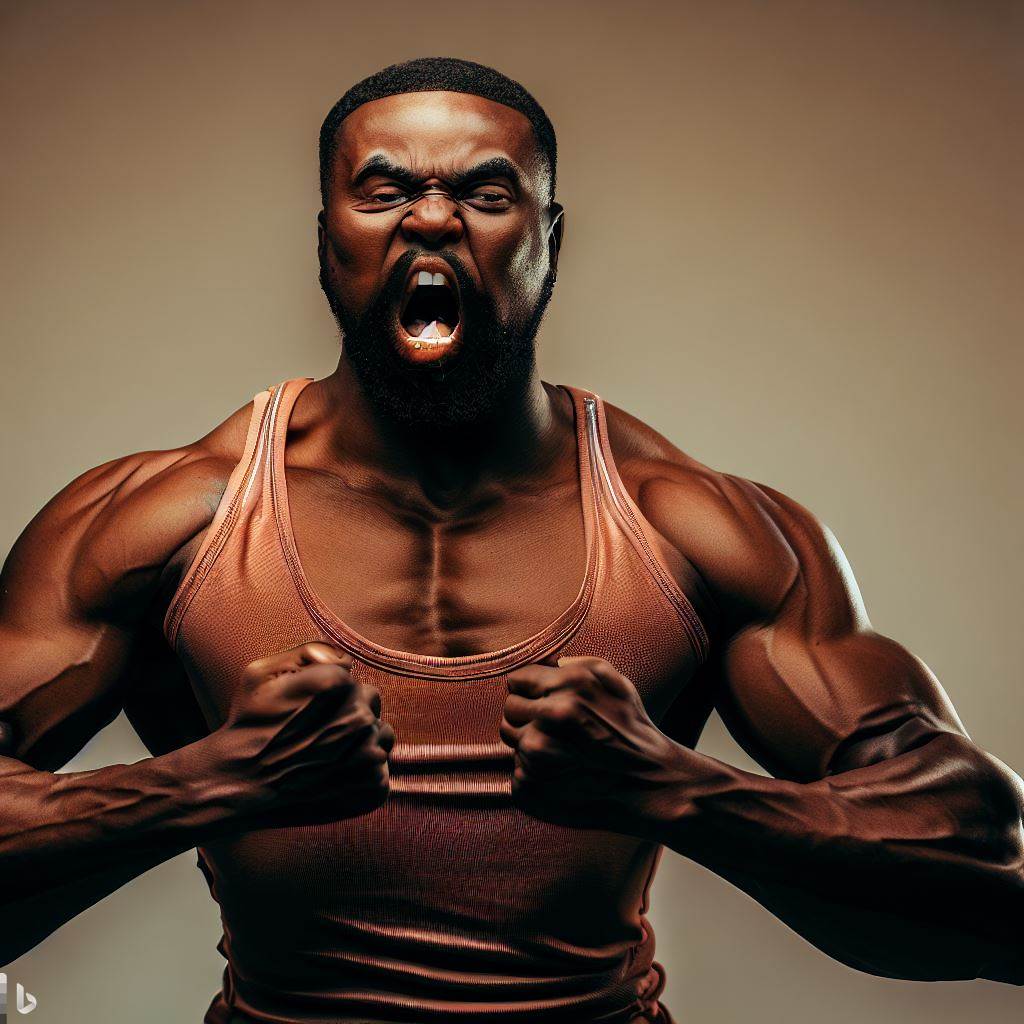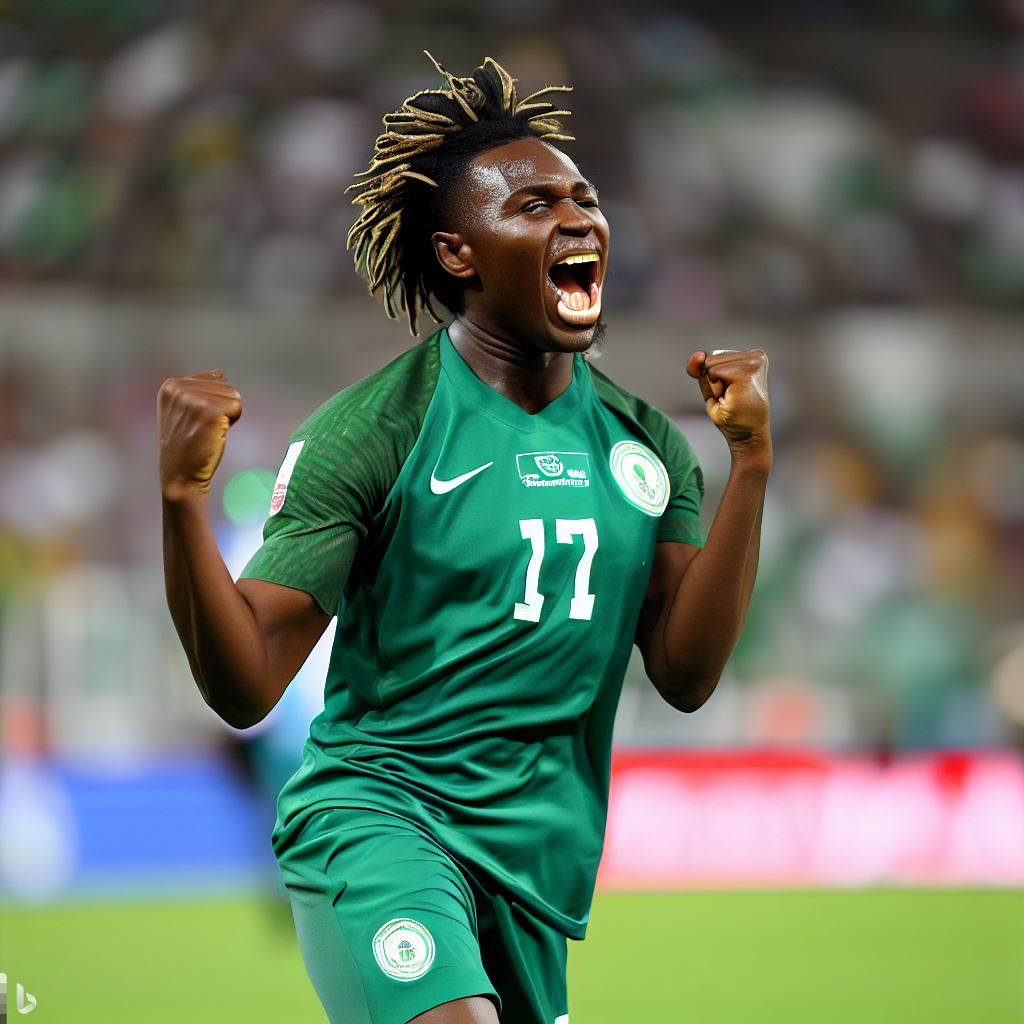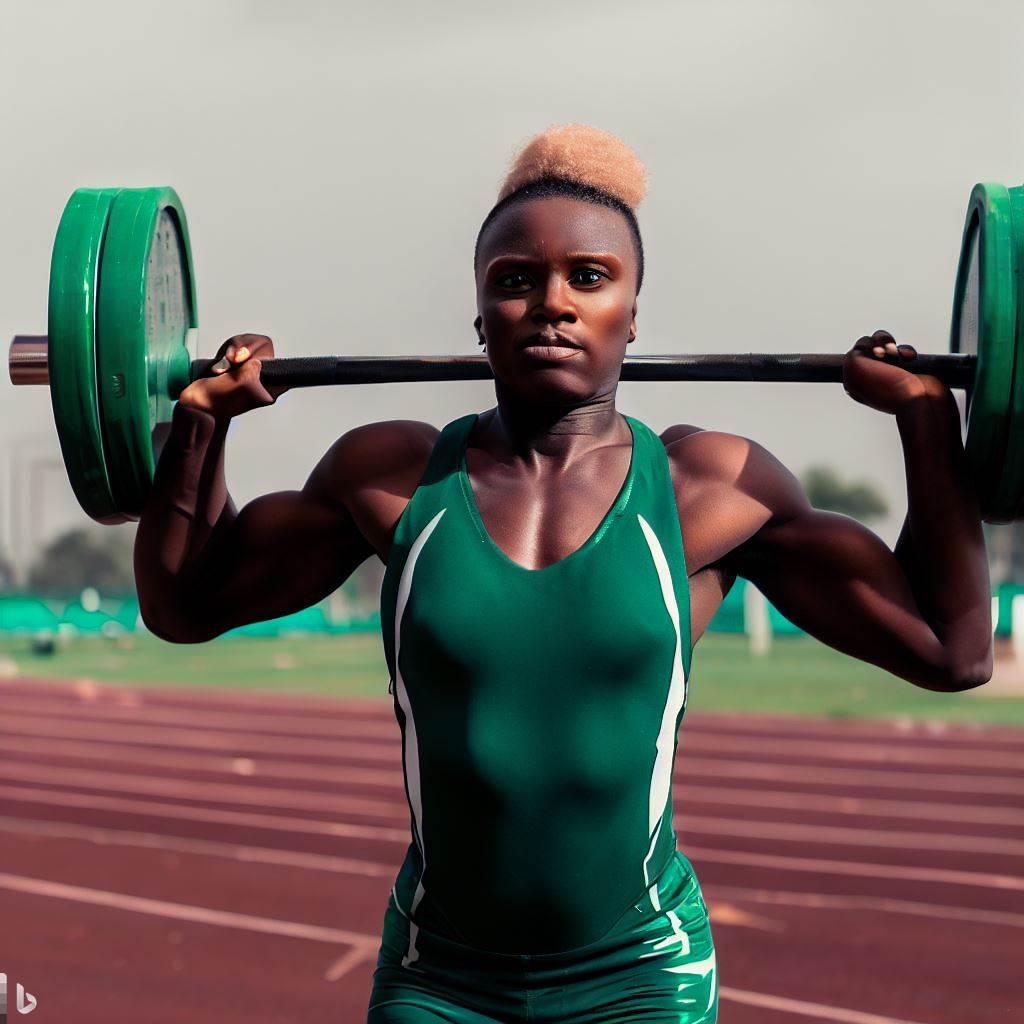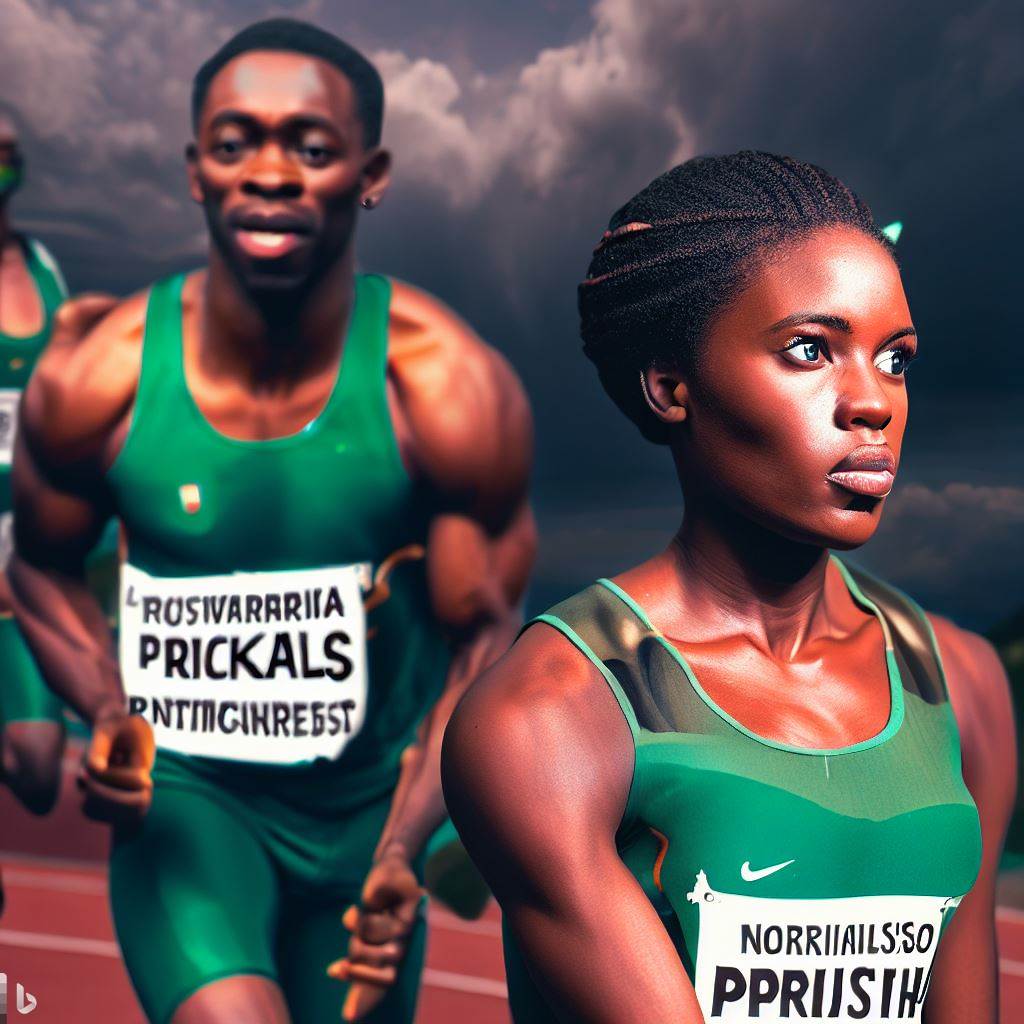Introduction
The Nigerian sports industry is an integral part of the country’s economy and cultural heritage. The country has produced world-renowned athletes who have brought pride to the nation on the global stage.
Nigerian athletes have showcased their talent and strength in various sports ranging from football, athletics, boxing to basketball.
Nigerian athletes have represented the country in major international competitions such as the Olympics, Commonwealth Games, African Games, and the World Cup.
Their participation has brought a sense of patriotism and unity among Nigerians, promoting the country’s image globally.
However, Nigerian athletes face numerous challenges that hinder their development and growth.
These challenges range from inadequate funding, inadequate facilities, poor training and development programs, corruption, and political interference.
To address these challenges, the government and sports federations must work together to provide adequate funding, upgrade sports facilities, and implement transparent and fair selection processes for athletes. This will go a long way in nurturing and developing talented Nigerian athletes for success on the world stage.
Here, we will discuss these challenges facing Nigerian athletes in detail and suggest potential solutions to address them.
Read: Rising Stars in Nigeria’s Sports and Athletics Scene
Lack of government support
Lack of government support is considered one of the most significant challenges faced by Nigerian athletes today. It manifests in various ways, particularly in the areas of funding, facilities, and athlete welfare.
Insufficient funding for sports development
The Nigerian government has consistently failed to provide adequate funding for sports development, resulting in a lack of resources and opportunities for athletes.
This lack of funds affects all aspects of sports, from coaching to infrastructure development, equipment purchase, and athlete sponsorship.
Sports development requires a substantial investment, and without government support, athletes struggle to reach their full potential.
Furthermore, the lack of funding makes it difficult to hold international competitions, which are an essential part of an athlete’s development.
Lack of proper facilities for training and competitions
Athletes require top-notch facilities for training to reach their full potential.
Nigeria’s sports facilities remain inadequate, with inconsistent maintenance and limited equipment.
Many facilities in Nigeria lack modern equipment or even standard surfaces required in competition, like tartan tracks.
The lack of proper facilities affects athletes’ performance, as they are forced to train on sub-standard surfaces.
Additionally, the few adequate facilities available are often overbooked, making it challenging to access them frequently.
Inadequate welfare package for retired athletes
Nigerian athletes face challenges even after they retire. One prominent challenge is the lack of an effective welfare package.
Retirement from sports can be difficult for athletes who have dedicated most of their lives to the profession.
Even with the best medical treatment, some athletes still face lifelong injuries they sustained while competing.
Without proper healthcare support and financial compensation, retired athletes struggle to pay for healthcare and other essential needs.
In summary, Nigerian athletes face a lot of challenges in their quest to reach international heights.
These challenges include insufficient funding for sports development, inadequate facilities for training and competitions, and inadequate welfare package for retired athletes.
The Nigerian government must prioritize sports development by providing adequate funding, improving facilities, and creating effective programs for retired athletes’ welfare.
Read: Starting Your Journey in Nigeria’s Athletics Profession
Poor Coaching Standards: Challenges Faced by Nigerian Athletes Today
Coaching is an essential aspect of sports and has a significant impact on athletes’ overall performance.
However, Nigerian athletes today face several challenges related to poor coaching standards, which affects their development and progress in sports.
Here are some of the top challenges faced by Nigerian athletes today:
Scarcity of Qualified Coaches
One of the significant challenges faced by Nigerian athletes is the scarcity of qualified coaches.
There are not enough coaches who have the necessary knowledge and expertise to train athletes to compete at an international level.
This scarcity is due to the lack of investment in coaching development programs and the inadequate funding of sports in the country.
Without enough qualified coaches to cater to their particular needs, Nigerian athletes cannot maximize their potential and compete on a global platform.
High Rate of Untrained and Unskilled Coaches
The lack of qualified coaches has led to a high rate of untrained and unskilled coaches.
These coaches lack the necessary skills and knowledge to train and develop athletes effectively.
They may use outdated techniques or inappropriate training methods that could lead to injury or hinder the athletes’ overall progress.
With untrained and unskilled coaches, many Nigerian athletes may not receive the right training and support needed to compete at the highest level, leading to mediocrity or underachievement in sports.
Poor Remuneration and Motivation for Coaches
Another critical challenge in Nigerian sports is the poor remuneration and motivation for coaches.
Most coaches are not adequately compensated for their work, and this can be demotivating and disheartening.
This makes it challenging to attract and retain qualified coaches, leading to a further scarcity of quality coaches in the country.
Without motivation and adequate financial compensation, coaches may not give their best to train and develop athletes, which can have adverse effects on the athletes’ performance and progress.
Essentially, Nigerian athletes face significant challenges related to poor coaching standards, which hinder their growth and development in sports.
The scarcity of qualified coaches, the high rate of untrained and unskilled coaches, and the poor remuneration and motivation for coaches are some of the critical challenges that need to be addressed in the country’s sports sector.
Investing in coaching development programs, providing adequate funding for sports, and offering incentives and a better working environment for coaches can go a long way in improving coaching standards in Nigeria.
This will result in better-trained athletes who can compete and excel on a global platform, bringing credit and honor to the nation.
Read: Nigeria’s Military Strategy in a Changing World: An Analysis
Sports infrastructure
Sports infrastructure is a vital factor in the development of athletes in Nigeria. However, there are numerous challenges which hinder the progress of sports infrastructure in the country. These challenges include:
Poor maintenance culture of sports facilities
The lack of proper maintenance culture is one of the primary reasons for the poor state of sports infrastructure in Nigeria.
Most of the public sports facilities are either poorly maintained or left to deteriorate over time.
The neglect of sports facilities renders them unusable, thereby depriving athletes and sports enthusiasts of their benefits.
It is essential to cultivate a culture of proper maintenance and repair of sports facilities to preserve their functionality and usefulness.
Lack of investment in sports infrastructure development
The dearth of investment in sports infrastructure is a major factor limiting the development of sports in Nigeria.
The government’s lack of investment in the construction and maintenance of sports facilities has resulted in a deficiency of adequate infrastructure that can support the development of sports.
Private investors can also aid in the development of sports infrastructure, yet the absence of meaningful investment is crippling the prospects of the Nigerian sports industry.
Inadequate sports technology and equipment
Inadequate sports technology and equipment pose a significant challenge to Nigerian athletes.
Access to the latest sports technology and equipment is a requirement for the growth and development of sports in any country.
However, this is not the case in Nigeria. Lack of access and inadequate provision of quality sports technology and equipment means athletes are left to struggle with outdated and non-functioning equipment.
This underinvestment in sports technology directly contributes to poor performance by Nigerian athletes at the international stage.
Conclusively, addressing the challenges faced by Nigerian athletes in sports infrastructure requires a combined effort between the government, private organizations, and concerned individuals.
Boosting investment and improving maintenance culture are essential steps in bringing about much-needed change in the sports industry.
Additionally, making sports technology and equipment more accessible to Nigerian athletes will go a long way in ensuring that they remain competitive at the global level.

Athletes’ welfare
- Exploitation by sports agents and managers
- Lack of career development support for athletes
- Poor health insurance and medical care
Athletes are the backbone of every nation’s pride during international competitions.
They work tirelessly to represent their country despite facing numerous challenges that include exploitation, lack of career development support, and poor medical care.
Exploitative Challenges that Nigerian Athletes Face Today
Exploitation by sports agents and managers
Sports agents and managers are responsible for handling the affairs of athletes. However, reports show that some of them exploit athletes’ ignorance and skill to make money.
Agents and managers promise lucrative contracts to athletes, only to pay them peanuts. Sadly, some athletes fall for this as they have no knowledge of what they are signing up for.
It is important for athletes to seek legal advice before entering into any agreement with agents or managers.
Lack of career development support for athletes
Unlike other countries, Nigeria does not have a comprehensive development plan for athletes. As a result, most athletes retire and are left on their own.
This has resulted in athletes struggling to find jobs or make a living.
The lack of career development support has also created a breeding ground for corruption as agents and managers take advantage of the athletes’ desperate situation.
Poor health insurance and medical care
The cost of medical care in Nigeria is high, making it difficult for most people to access quality medical care.
Athletes, in particular, are vulnerable as they are exposed to injuries and other health risks during training and competitions. Sadly, the government has not invested much in sports medicine and rehabilitation.
This has made it difficult for athletes to access quality medical care when they need it most.
In addition, the above-listed challenges faced by Nigerian athletes today need to be addressed urgently.
The government and other stakeholders need to come up with a comprehensive plan to ensure that athletes are well taken care of.
This should include guidelines on the conduct of sports agents and managers, career development support, and provision of quality medical care.
By addressing these challenges, Nigeria will be able to produce world-class athletes who will make the country proud.
Athletes are the backbone of every nation’s pride during international competitions.
They work tirelessly to represent their country despite facing numerous challenges that include exploitation, lack of career development support, and poor medical care.
Read: Becoming a Military Officer in Nigeria: A Step-by-Step Guide
Top Challenges Faced by Nigerian Athletes Today
Athletes are individuals with a passion for sports and a desire to compete at the highest level. However, Nigerian athletes encounter a gamut of challenges while striving to make a name for themselves in the global sporting arena.
In this section, we will take a look at the top challenges faced by Nigerian athletes today.
Lack of Adequate Competition
- Insufficient competition opportunities for athletes: Athletes thrive on competition, and the lack of it can hinder their development and growth in the sport. Unfortunately, Nigerian athletes face a significant challenge in finding adequate competition opportunities.
- Poor organization of national and international sporting events: Most competitions are poorly organized, and athletes are often left to source their own equipment, training facilities, and funding. The disorganization of sporting events has also affected the growth of sports in Nigeria.
There are several instances where athletes train for months or years, only to arrive at a competition with no idea of what to expect. In some cases, events are canceled at the last minute without any prior notification, subjecting athletes to financial and emotional stress. Additionally, the lack of sponsorship means that athletes incur most of the competition-related expenses. - Inadequate participation in global sporting events: Nigerian athletes also struggle with the inability to participate in global sporting events. Most athletes cannot afford to compete in international competitions due to the high cost of traveling, visas, and accommodation.
This lack of exposure denies athletes the opportunity to interact with world-class competitors and learn from their experiences. In turn, this reduces the chances of Nigerian athletes achieving global recognition and competing at the highest level in their chosen sports.
Economic Challenges
- Limited access to funding and sponsorships: Nigerian athletes combat tough economic challenges, which often make it difficult to pursue sports as a career. Limited access to funding and sponsorships means that most athletes rely on their families for financial support.
- Inadequate remuneration for established athletes: Additionally, most sporting federations in Nigeria do not offer adequate remuneration packages for athletes. Even established athletes barely earn enough to meet their basic needs.
This lack of financial incentives has led to some athletes abandoning their dreams of making it big in sports.
Infrastructure Challenges
- Insufficient facilities for training and competition: Athletes require access to world-class facilities to hone their skills and prepare for competitions. However, in Nigeria, facilities for training and competition are insufficient. Most training facilities lack basic amenities, like running water and electricity.
- Poor maintenance of existing infrastructure: Similarly, existing infrastructure for sporting events is poorly maintained, which implies that athletes are often forced to compete under suboptimal conditions. The poor infrastructure has also led to many talented athletes retiring early due to injuries sustained while competing.
Nigerian athletes are a resilient lot, and despite the challenges they face, they continue to pursue their dreams of success in sports.
The challenges highlighted in this blog limit the growth and development of sports in Nigeria. To improve the status quo, sporting federations and the government must work together to provide better facilities, improve organization, and increase funding and sponsorship opportunities for athletes.
Conclusion
Finally, Nigerian athletes face an array of challenges that hinder their success in the sports industry.
From lack of adequate training facilities, insufficient funding, and limited career progression opportunities to rampant corruption, these issues must be addressed urgently to empower talented athletes to reach their full potential.
There is a need for all stakeholders to work together in providing the necessary resources and support for athletes to excel.
The government, private sector, sports federations, coaches, and the athletes themselves must collaborate in tackling these challenges to build a better sports industry in Nigeria.
Despite the daunting challenges faced, there is still hope for Nigerian sports as we have seen athletes excel on the global stage.
With an effective and efficient sports system that caters to the needs of athletes, the country can produce even more world-class athletes and boost its image as a sporting nation.




